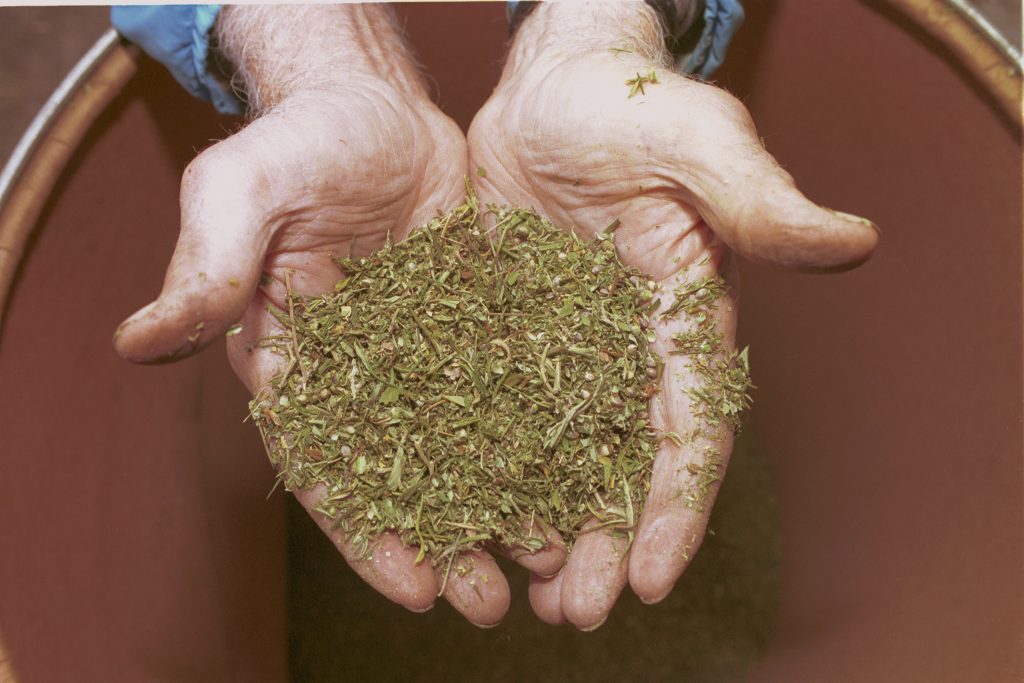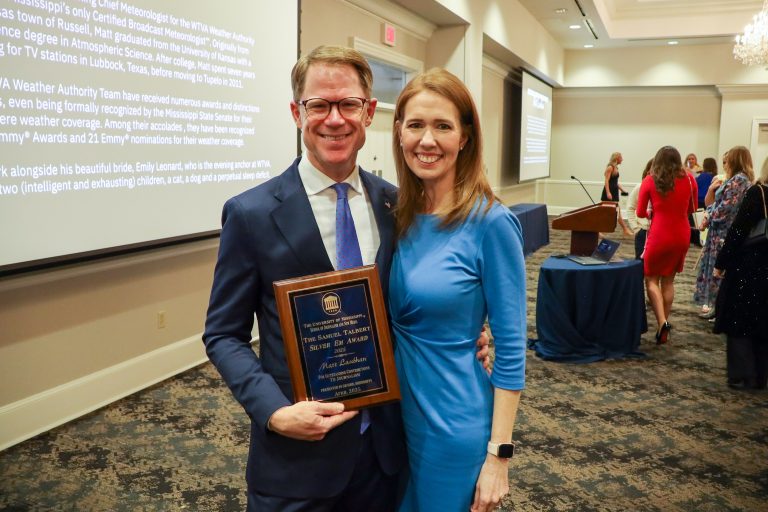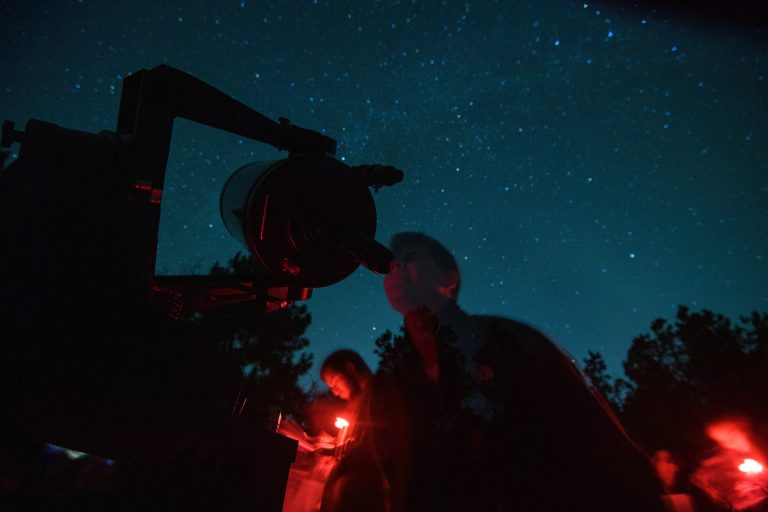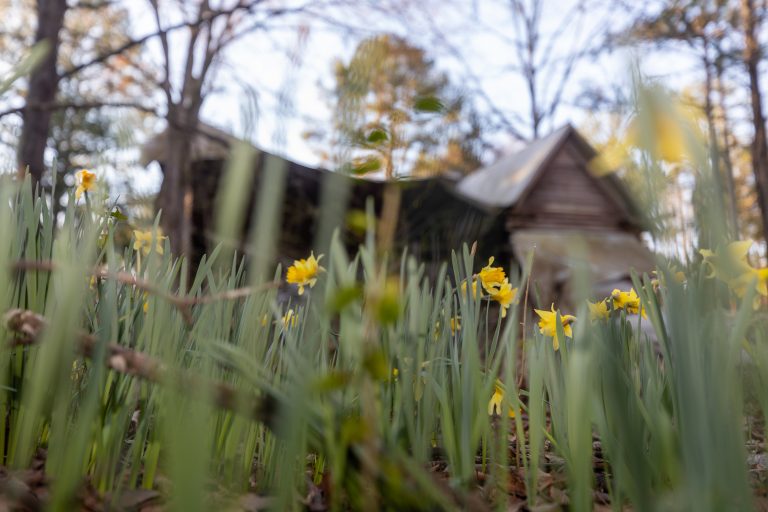
Researchers in the University of Mississippi School of Pharmacy have produced cannabis for research use since the late 1960s under a contract from the National Institute on Drug Abuse. The school's National Center for Natural Product Research will house the new Resource Center for Cannabis and Cannabinoid Research. Photo by Robert Jordan/Ole Miss Digital Imaging Services
Multi-institution partnership to tackle scientific, regulatory challenges in cannabis studies
Staff Report
The University of Mississippi will be home to a new center designed to help researchers nationwide address challenges that hamper research into therapeutic uses for cannabis.
The Resource Center for Cannabis and Cannabinoid Research, also known as R3CR, will operate in the National Center for Natural Products Research. The center is supported by a grant partnership led by the National Center for Complementary and Integrative Health.
The R3CR will provide cannabis research information through an interactive website, webinars, seed funding and conferences. This will help researchers generate more science-backed evidence.
Over the next five years, the resource center will allow more researchers to enter the field of cannabis research, said Donald Stanford, assistant director of the Research Institute of Pharmaceutical Sciences., the Ole Miss institute that oversees the natural products center. And those scientists will likely realize a significant improvement in the quality of their work, he said.

“People will realize significant changes in the landscape of cannabis research,” he said. “Changes such as stronger and improved regulation compliance, development of more cannabis technologies, as well as the FDA receiving relevant safety data to make decisions on cannabinoids in foods and dietary supplements, can all eventually contribute to people’s health.
Through a collaborative agreement with the National Institutes of Health, NCNPR will lead the partnership with Washington State University and the United States Pharmacopoeia to provide guidance on regulations, quality standards and best practices.
The NIH partners include the National Institute on Drug Abuse, National Institute on Aging and National Cancer Institute. All have a shared interest of developing standard methods for scientific investigations into possible therapeutic effects of compounds found in the Cannabis sativa plant.
“The missions of the participating NIH institutes reflect why I am so excited about the long-term outcomes that are possible,” Stanford said. “We all have family and friends who face diseases or conditions for which alternative treatments may be effective.”
The resource center will comprise three scientific core groups that have specialized responsibilities and activities: a regulatory guidance core, a research support core and a research standards core.
The regulatory guidance core will be led by Mahmoud ElSohly, research professor in the natural products center and longtime director of the UM Marijuana Project. The group will serve as a clearinghouse for rules and regulations from the U.S. Drug Enforcement Agency and the U.S. Food and Drug Administration that affect cannabis research.
“Because conducting cannabis studies involves a complexity of regulations of various federal and state agencies, both researchers and administrators must fully understand the requirements and must devise ways to comply in a practical manner,” ElSohly said. “Our resource center will strive to provide guidance on matters such as this.”
Robert Welch, director of the National Center for Cannabis Research and Education at UM, will join ElSohly in helping interpret regulations.
“Some researchers in the U.S. may be unclear on the regulatory requirements for carrying out cannabis studies with human subjects,” Welch said. “FDA and the administrators of various state-sanctioned medical cannabis programs want to see these types of studies move forward so that researchers can properly explore concerns about safety and efficacy.”

Mary Paine, professor of pharmaceutical sciences at WSU, will lead the research support core. This part of the resource center will disseminate scientific and regulatory information, organize workshops and conferences and administer seed funding grants to cannabis researchers nationwide.
Nandakumara Sarma, director of dietary supplements and herbal medicines at USP, will lead the research standards core that will provide best practices and technical information guidance.
The new resource center aims to work with a broad range of people and organizations engaged in studying cannabis. These include scientists, federal and state agencies, institutional administrators and suppliers of research materials.
“This is a unique opportunity to assist others and encourage further research in all fields of cannabis research,” said Ikhlas Khan, director of the National Center for Natural Products Research and leader of the new resource center.
“Establishment of this center should promote more science, and our hope is that in the near future, this center will develop evidence-based products that will address quality, safety and efficacy.”
This project was made possible by grant no. U24AT013161 from the National Center for Complementary and Integrative Health, the National Cancer Institute, the National Institute on Aging and the National Institute on Drug Abuse. Its contents are solely the responsibility of the authors and do not necessarily represent the official views of the NCCIH, NCI, NIA, NIDA and the National Institutes of Health.



